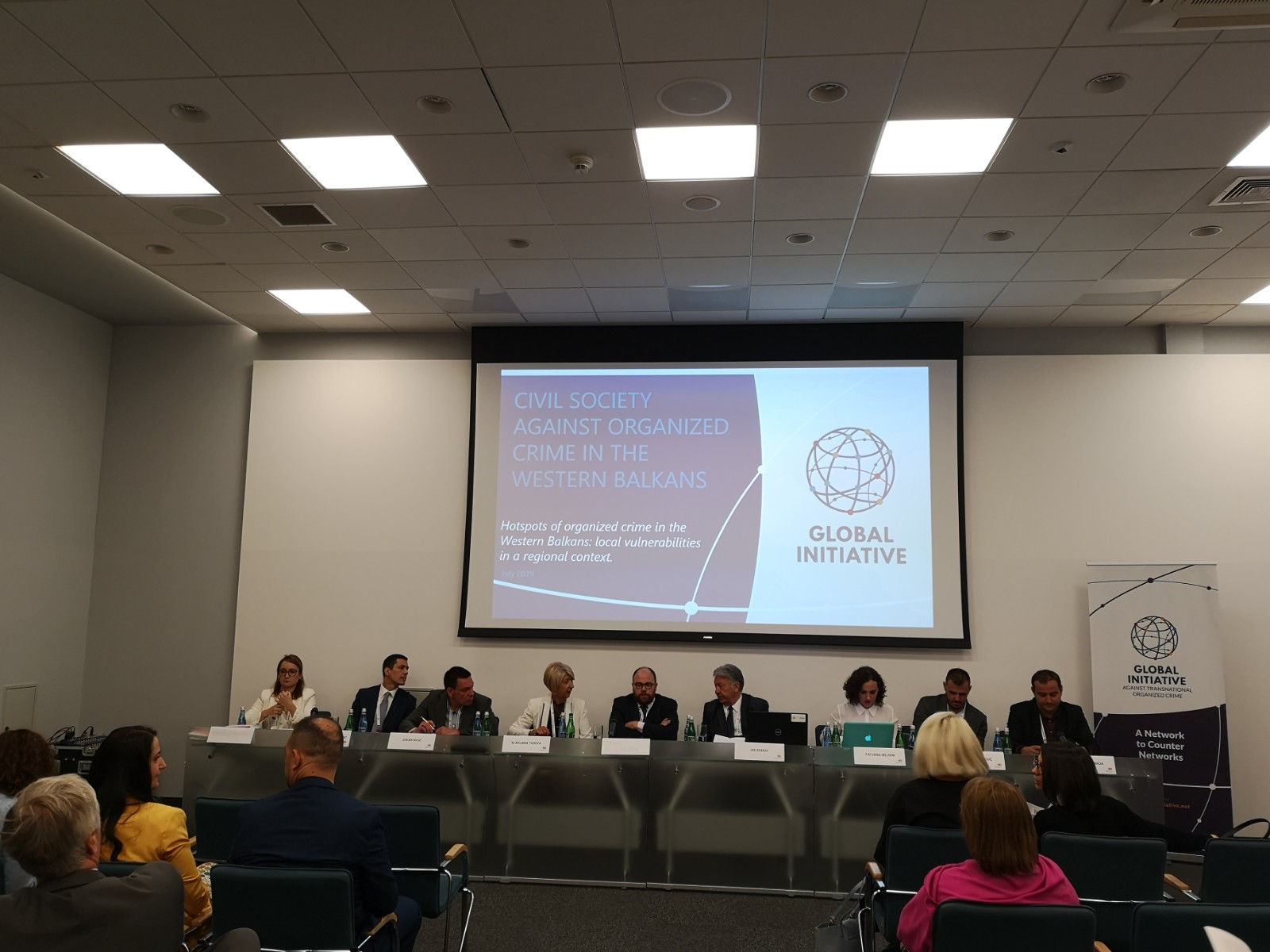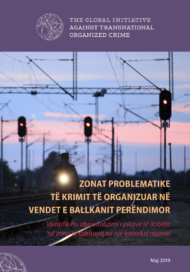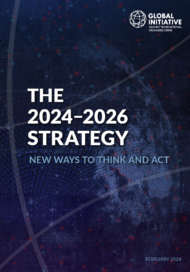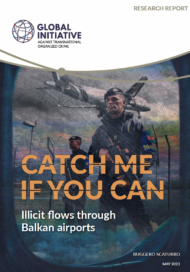Posted on 24 Jul 2019
Civil society plays a central role in monitoring and evaluating the Western Balkans governments’ progress on tackling organized crime and corruption. The non-governmental sector remains isolated, however, as regional governments continue to be hesitant to cooperate.
In the Western Balkans, corruption appears to be elite-driven and the business of organized crime is reportedly closely linked to public-sector administration. The regional fight against corruption is not just about a desire to achieve better economic growth, but also aims to have a positive impact on many political and societal aspects, including well-functioning democratic institutions. In fact, corruption has a detrimental impact on the overall socio-economic well-being of the region’s citizens.
Civil society has a long history of monitoring and investigating government accountability when it comes to organized crime and corruption in the Western Balkans. In the fight against corruption, it therefore has a fundamental role to play in monitoring how the Western Balkans governments’ performance on tackling corruption and organized crime is matching up to their commitments.
This is why at the recent 2019 Western Balkans Summit, held in Poznań, Poland (4-5 July), the importance of governmental cooperation with non-governmental organizations in policy debates was reiterated by all stakeholders, including the leaders of the Western Balkans, who said that they supported collaboration with expert groups and that ‘the responsibility for building resilience to corruption lies with multiple public authorities, the private sector and civil society’.
The topic of anti-corruption within the Berlin Process (an initiative to boost regional cooperation among Western Balkans states and guide their European integration) is nothing new. In July 2018, five of the so-called Western Balkans Six (WB6) voiced their continuing commitment to the fight against corruption by announcing anti-corruption pledges. Later, Serbia joined the chorus of voices in 2019. These pledges were ambitious and far-reaching, but talk alone, however positive, cannot end corruption and other forms of organized criminality. What is needed is for civil society to be given a strong, independent role in guiding the region’s long-term anti-corruption efforts by assessing governments’ performance.

This year, the topic of anti-corruption was once again on the agenda of the Poznan Summit. In an attempt to bridge the gap between governmental agencies and civil society, and to initiate a dialogue on how to review the anti-corruption pledges, the Global Initiative Against Transnational Organized Crime was invited to participate in the summit’s Civil Society Forum (held on 4 July) as part of a panel on the topic of ‘Anti-corruption as First Condition of Economic Growth’. During the session, civil-society representatives from the region expressed their strong commitment to closely monitor their governments’ progress on anti-crime and anti-corruption pledges, and voiced the need to independently review governments’ commitments on the way forward.
As was the case at a previous preparatory meeting in March 2019, the panel was organized within the framework of the Global Initiative’s Civil Society Observatory to Counter Organized Crime in South Eastern Europe, which brings together civil society representatives from the Western Balkans with the aim of enhancing local cooperation in the fight against organized crime and corruption.
During the session, the Global Initiative’s May 2019 report ‘Hotspots of organized crime in the Western Balkans: Local vulnerabilities in a regional context’ provided the evidence-based foundation to review the local ecosystem of criminality that enables the spread of organized crime and corruption through the region. Local anti-corruption experts examined the significance of the 2018 anti-corruption pledges and what has been achieved since then. The pledges, announced in preparation to the 2018 London Summit of the Berlin Process, mostly formed part of countries’ national anti-corruption frameworks. Nevertheless, it was with a degree of pessimism that one of the panelists said: ‘We have seen many anti-corruption and anti-crime strategies, many pledges and commitments across the region but nothing ever changes.’ Civil society was not consulted when drafting the
pledges, and most were not translated into local languages.
The Berlin Process has indicated that tackling corruption is fundamental to the development of the Western Balkans. Yet few concrete steps have been taken to review the regional governments’ commitments.
In order to achieve measurable results on the way forward, it is necessary that this fight be led as a joint effort, with dialogue between policymakers and civil-society representatives. The importance of involving civil society in the monitoring of Western Balkans’ anti-corruption commitments was also supported by the UK government, given that the anti-corruption pledges were initially introduced at the London Summit in 2018.
In his opening remarks at the summit, Adam Gardner, head of the Serious and Organized Crime Department at the UK Home Office, emphasized the significance of establishing an independent anti-corruption civil-society monitoring process.
What is clearly lacking across the region in the fight against corruption, and organized crime more generally, is a set of indicators to monitor and evaluate government commitments. Governments and civil-society organizations must work together to formulate and define this monitoring process. A dual monitoring approach is essential to ensure checks and balances are made on the responsible agencies. Multiple actors need to step up to the mark: NGOs need to pressure governments for greater transparency in their policies on organized crime, while individuals can influence this development through social media. Meanwhile, the European Union and its member states can support the process from outside. The added value of a monitoring process in the Western Balkans is that it is led and advanced by an already active civil-society constituency, in a region and on a theme that are both high on the international political agenda.
A year has passed since the introduction of the Western Balkans anti-corruption pledges and it appears that another year will pass without an independent civil-society monitoring process.
Whereas, before the Poznan summit, EU governments appeared to be eager for civil society to independently review their anti-corruption commitments, during the summit there was the distinct feel of push back and consensus for a civil-society monitoring approach was not reached at the ministerial level, according to the concluding statements. Although policymakers reconfirmed that tackling corruption remains a priority for the region, and that collaboration with multiple actors was needed, it appears that, in reality, the governments of the Western Balkans remain reluctant to be reviewed by civil society. Some might argue that they foresee criticism of their current performance by civil-society actors. Considering the general fatigue around enlargement of the EU, there appears to be little motivation for the WB6 to commit, so, for now, the way forward in terms of monitoring the Western Balkans anti-corruption initiatives remains unclear.
The Global Initiative thanks the Republic of Poland for the invitation to organize the panel at the Civil Society Forum at the 2019 Poznań Summit and the government of the United Kingdom for its financial support for the Civil Society Observatory.



